Latest news from Washington, D.C. produced by Total Spectrum/SGA exclusively for members of the Arizona Chamber of Commerce & Industry
More Info: Michael DiMaria | Partner and Vice President of Business Development | 602-717-3891 | [email protected]

Many thanks for your interest in Washington, D.C., and thanks for reading This Week in Washington.
We are nearing the end of President Biden’s first year in office, and we’re about to enter 2022, which will feature next November’s off-year election. The legislative agenda will begin to bump into the political agenda. Today’s Heard on the Hill features trend lines of current polls and the back story of how the debt ceiling bill passed the U.S. Senate.
This week’s Total Spectrum Spotlight is with Senator John Barrasso, MD (R-WY). As Chairman of the Senate Republican Conference, Senator Barrasso is the third ranking member of the Republican Senate Caucus. He serves on the Senate Energy and Natural Resources Committee, the Senate Finance Committee, and the Senate Foreign Relations Committee. My friend and colleague Congressman Erik Paulsen spent some of his August in Wyoming with the Barrassos and recently taped a wonderful interview with the Senator.
The President’s legislative agenda will go through twists and turns as we get closer to November, and we’ll continue to keep you up to date in future issues of This Week.

Total Spectrum Managing Director
This Week in Washington Spotlight
Senator John Barrasso (R-WY)
This week’s Total Spectrum Spotlight featuring United States Senator Barrasso from Wyoming focuses on current events at the Capitol. Congressman Erik Paulsen and Senator Barrasso discuss the infrastructure bill impasse; the debt ceiling debate; concerns over higher inflation, and the social spending plan introduced by House Democrats.
Heard on the Hill
By Steve Gordon, Total Spectrum Managing Partner
The U.S. Senate is on recess this week, so I took the opportunity to leave Washington, D.C. on Friday night to visit one of our midwestern clients. The flight and the downtime over the weekend gave me some time to digest and consider everything that happened last week.
Politics #1
We don’t report on specific campaigns and races, but we do keep track of trends and political themes that can – and do – impact legislative activity.
I met with two Republican pollsters last week and read the data behind a third national poll, and the polls were surprisingly consistent. The clear sense of these and other recent polls is that if the election were held this month Republicans would take control of the House and could even take over the Senate by a seat or so.
Of course, the election will not be held until next November, but these trends have national Republicans cautiously optimistic and national Democrats nervous. Poll after poll shows that President Biden is losing altitude because he is beginning to lose independents. The reasons are varied but it seems that there are at least five reasons that are consistent in current polls.
Some independents thought that President Biden would bring stability to our foreign policy, but they were disillusioned by the pictures of our exit from Afghanistan. Americans certainly were divided about whether we should leave some troops in that country or pull out completely, but the images of Americans flying out and abandoning many of the Afghans who fought with us hit a nerve.
Some independents, particularly seniors, thought that a Biden Administration would be able to stop the dying and sickness caused by the COVID pandemic. While it’s fair to say that we have made progress, America has lost over 700,000 lives, and Americans desperately want to get back to how we lived pre-pandemic.
A resounding number of suburban independents – as many as 64% in one poll – are opposed to the Biden Administration’s $3.5 trillion proposal for social spending. There is certainly spending fatigue, and a very high percentage of suburban independents think many of the items in the bill are extreme and a waste of money. Progressives are being tagged for what many suburban independents perceive as extreme demands.
A very significant number of suburban independent parents do not like what their kids are learning in school, and there’s little question that COVID contributed to the awareness of the problem. Many parents were home and siloed during the pandemic and were shocked by what their kids were learning (and not learning) in school.
Early polls and $2.50 will buy you coffee… and not much more. Any number of things could happen between now and next November, but at least for now, the trend line seems to be in one direction.
The Debt Ceiling – Round 1
Make no mistake, both parties realize that not lifting the debt ceiling is both irresponsible and threatens our market economy. Neither party wants to be tagged as the party that caused the increasing debt, though it is perfectly fair to say that both sides of the aisle helped get us where we are today. It’s also perfectly accurate to say that Democrats have control of government in Washington, D.C., and that the $3.5 trillion social spending bill is helping to unite Republicans and suburban Independents.
Minority Leader McConnell has said for many months that Senate Republicans were not going to help Democrats raise the debt ceiling. Senate Democrats didn’t mind passing a bill raising the debt ceiling, but without Republican votes the only way they could pass it would be to include it in the budget reconciliation bill. The Senate Parliamentarian and the Byrd Rule (named for former Senator Robert Byrd of West Virginia) limits items considered under reconciliation to those that relate to the budget, so Democrats would have to raise the debt ceiling by a specific amount of money rather than for a specific length of time – and that creates a perceptional problem.
There was another option available to Senate Democrats and the President, and that was to blast a hole in the filibuster rule. Most Democrats will privately admit that Majority Leader Harry Reid’s adjustments to the filibuster rule in 2013 for executive and judicial nominees allowed Republicans to confirm three conservatives to the Supreme Court during the Trump Administration – but the progressive base wants their agenda passed …and now. Senate Democrats were putting significant pressure on Senators Kyrsten Sinema (D-AZ) and Joe Manchin (D-WV) to allow for a one-time change in the filibuster rule to raise the debt ceiling, although though there was and still is significant legal question if the filibuster rule could be overridden for just one bill.
President Biden, long a supporter of the Senate filibuster, announced that he would support a one-time rule change. Senators Sinema and Manchin, both supporters of the filibuster, were really on the hot seat.
Leader McConnell has been as staunch a supporter of the Senate filibuster as almost anyone in the Senate. He fears for the future of our democracy if the filibuster – for many, the Senate’s guardrails – are taken down. Senator McConnell told his caucus that he was changing his position on the debt ceiling and would help Democrats pass a short-term debt ceiling increase.
Eleven Republicans joined with all 50 Democrats to pass a procedural vote, surpassing the 60- vote threshold. The final vote on the bill was 50 votes to raise the debt ceiling and 48 votes against, which means that the debt ceiling was raised until at least December and the filibuster rule survives.
The House of Representatives also passed the debt ceiling bill, and it is on its way to the President for his signature.
Leader McConnell has already said that it will be up to Democrats to raise it next time.
Bottom line on the $3.5 trillion social spending bill
Democrats realize that they have to shrink the bill to get the support of Senators Sinema and Manchin, and to overcome the political losses they also see in the polls.
Washington’s parlor game is guessing the final cost of the reconciliation bill. I asked Senator Roy Blunt (R-MO) for his opinion, and he replied, “Two trillion dollars is a reasonable guess, but there is a 20% percent chance that the wheels fall off the wagon.”
Congressional Calendar
Wednesday, October 13
- 10:00 a.m. House Veterans Affairs Committee hearing – Domestic Extremist Recruitment of Veterans.
- 11:00 a.m. House Natural Resources Committee Markup – pending legislation.
- 12 noon. House Financial Services Committee hearing – Ethics-Artificial Intelligence and the Digital Age.
- 12 noon. House Small Business Subcommittee on Contracting and Infrastructure hearing – Government Contracting Small Business Supplier Base.
- 2:00 p.m. House Veterans Affairs Subcommittee on Health hearing – Pending Veterans Health Legislation
Thursday, October 14
- 10:00 a.m. House Natural Resources Subcommittee on National Parks, Forests and Public Lands hearing – pending business.
- 11:00 a.m. House Science, Space, and Technology Committee hearing -Future of Weather Forecasting.
- 12 noon. House Financial Services Subcommittee on Oversight and Investigations hearing – Impacts of a Cashless Economy
- 12 noon. House Natural Resources Subcommittee on Energy and Mineral Resources hearing – Abandoned Offshore Oil/Gas Infrastructure.
- 12 noon. House Energy and Commerce Subcommittee on Consumer Protection and Commerce hearing – Manufacturing/Competitiveness Bills
- 1:00 p.m. House Foreign Affairs Subcommittee on Middle East, North Africa and Global Counterterrorism hearing – Democracy in Tunisia/US Policy.
Friday, October 15
- 12 noon. House Financial Services Subcommittee on Housing, Community Development and Insurance hearing – Impacts of Exclusionary Zoning.
- 2:00 p.m. House Natural Resources Subcommittee on Water, Oceans and Wildlife hearing – Colorado River Drought Conditions/Response.
Raising the U.S. federal debt ceiling to avoid a fiscal cliff
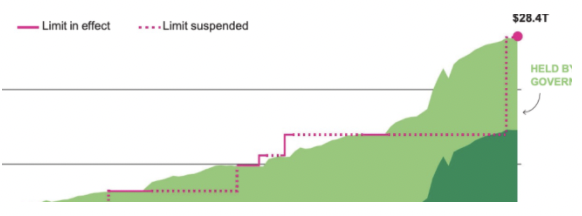
READ MORE
What you need to know about steel and aluminum tariff talks
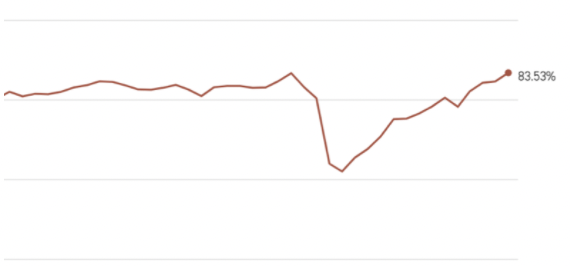
READ MORE
Environmental funding plays secondary role in reconciliation package
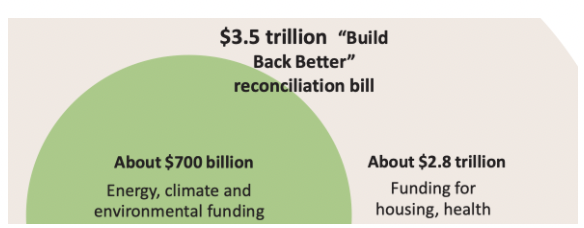
READ MORE
What you need to know about the push for mandatory cyber reporting
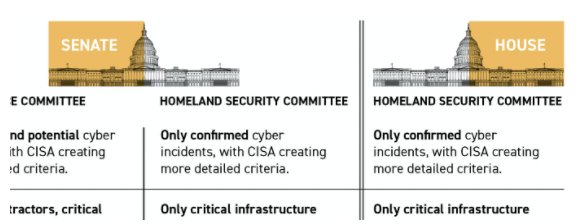
READ MORE
Covid-19 tracker: Hospitalizations fall to two-month low
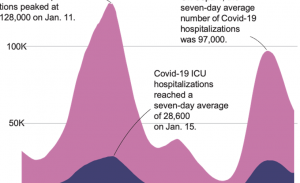
READ MORE
U.S. increasingly reliant on foreign semiconductor manufacturing as pandemic demands spike
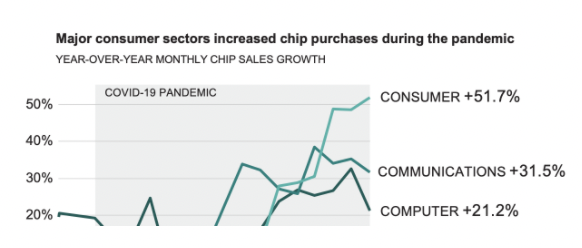

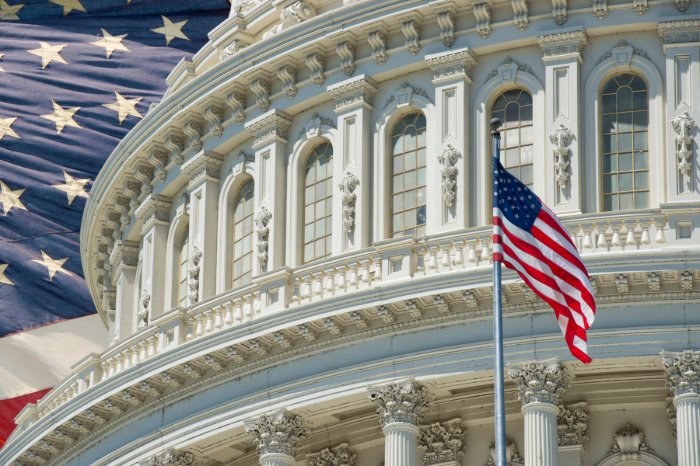














Add comment